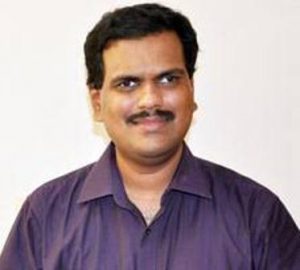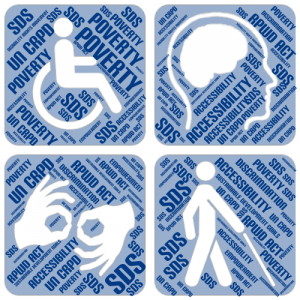People with Disabilities need to become agents of change: Praveen Kumar G
Change is a two-way process that needs to come from the society as well as from people with disability, shares the development professional in an exclusive interview to Delhi Post ahead of International Day of Persons with Disabilities on December 3.

“Why not disabled citizens?” asks Praveen Kumar G, amused, when asked why he chose to write the phrase ‘disabled citizen’ in the Disability Tracker Report brought out by development organisation VSO.
The ‘SDGs’ Disability Tracker- Nothing About Us Without Us, 2018’ report uses the phrase all throughout the text of the preface written by Praveen. While the reporter finds it intriguing as the widely accepted politically correct term is ‘People with Disabilities’, Praveen says it was “intentional”.
“We accept the term People with Disabilities given by UN Convention on Rights of People with Disabilities (CRPD) but what we want is that such people should also be considered as citizens. By using disabled citizens, we are demanding to be included,” Praveen says with intent, adding, “Inequality is perpetuated by the attitude that the society has on disabilities. So, we strongly believe that PwDs have a right to live life with dignity and on an equal basis with others”.
“If the polling booths are not accessible, and we are not able to freely move around and vote, then how do I call myself a citizen? Give us the space or the opportunity to participate equally. If you consider me as a citizen, then only I shall get the right. It is demanding citizenship for disabled people,” Praveen, who is currently the Advisor Social Inclusion, VSO and is visually-impaired, tells Delhi Post.
Together with local NGO and corporate partners, VSO is working with marginalised communities to increase awareness of, and access to basic services like health and nutrition, education and livelihoods, especially for the PwDs. “So in education, we focus on promoting inclusive education where we want all forms of discriminatory communities to have their children in schools with a priority on girl children with disabilities. In health, we focus mainly on adolescent youth and their sexual and productive rights so that mothers who are pregnant have access to pre and post-natal care and also aim to reduce infant mortality,” says Praveen.
Also Read: Tracking disability is the need of the hour
VSO also helps people of such communities to access employment opportunities. “Through entrepreneurship or self-enterprise, such people are encouraged to take up vocational skills. There are also agricultural-based livelihoods for strengthening farmer’s capacities and supporting them to access better services and have higher yields,” describes Praveen.
“The organisation believes that barriers like poverty and inequality become even more problematic when it comes to PwDs.”
 “We believe that poverty and disability go hand-in-hand because it is a cause and consequence of poverty and there are structural reasons for that. It is just not economic. We look at the holistic approach to address this issue and we believe that PwDs are the primary actors and key agents of change and the other stakeholders like civil society and the government also have a key responsibility and accountability to support PwDs to live with respect and dignity,” says Praveen.
“We believe that poverty and disability go hand-in-hand because it is a cause and consequence of poverty and there are structural reasons for that. It is just not economic. We look at the holistic approach to address this issue and we believe that PwDs are the primary actors and key agents of change and the other stakeholders like civil society and the government also have a key responsibility and accountability to support PwDs to live with respect and dignity,” says Praveen.
Passionate about development and particularly inclusion, Praveen mentions that even mainstream organisations such as those working for women and children should also extensively support PwDs. “I have been working for nearly two decades in and out of the disability movement to ensure that the systems and processes in the mainstream look at disability as an issue. Instead of a specific intervention, what is needed is a shift in mindset and attitudinal change for equal participation,” he shares.
“At the same time, Praveen who mentors young people including PwDs, and organisations so that they become more inclusive of PwDs at the organisational level, says that “more is needed” to overcome various barriers in society in terms of attitudes, environment, infrastructure and institutional barriers.”
“Have a positive attitude towards disability. We are not differently-abled or special. It’s the societal barriers that hinder our full participation. When we are given opportunities to participate, that is when change will happen,” points out Praveen, who is an alumnus from Madras Christian College.
Can economic independence lead to emancipation? “Economic independence is essential. The National Skill Development Mission, there are big opportunities. Such is the case with several companies and their CSR initiatives,” Praveen says.
“We have to promote both SDGs and awareness on RPWD Act as much as possible. Governments and civil society organisations should put out radio, TV advertisements, in newspapers and every kind of media so that the public can engage with it and become more aware,” says Praveen, adding that PwDs themselves need to stop feeling “disadvantaged”.
“Change is a two-way process. PwDs need to be more organised, come out of their shell and need to become change agents themselves so that they can be assertive and feel empowered,” he says.
